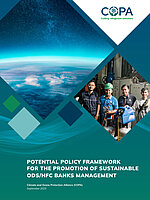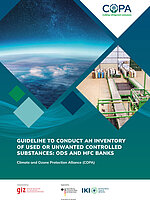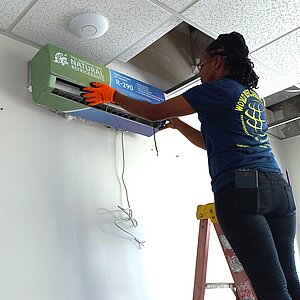Strategic cooling to cut global warming

International policy-makers and specialists met recently in Thailand to discuss greenhouse gas inventories in the refrigeration, air-conditioning and foam (RAC&F) sector.
In July 2017, the 39th Meeting of the Open-ended Working Group (OEWG) of the Parties to the Montreal Protocol took place in Bangkok. In the run-up to and during the meeting, international policy-makers and more than 40 specialists gathered to learn more about green cooling appliances and greenhouse gas (GHG) inventories in the refrigeration, air-conditioning and foam (RAC&F) sector that has the potential to cut global warming by 0.5 degrees Celsius. They also used the occasion to exchange lessons learned in the development of sustainable and climate-friendly cooling technology.
The RAC&F sector is responsible for the large growth in the amounts of CO2 and hydrofluorocarbon (HFC) emissions that occur during the production, operation and end-of-life disposal of cooling appliances, including both refrigeration and air-conditioning. The climate goals set out in the Paris Agreement and the Kigali amendment to the Montreal Protocol call for significant reductions in energy use and HFC consumption over the coming decades. Both indirect emissions resulting from electricity generation for cooling appliances and direct emissions caused by leakage of refrigerant gases need to be reduced.

In a workshop before the Meeting of the OEWG, discussions were held on various key topics, including policies, standards and regulations for transforming the sector towards climate-friendly and energy-efficient cooling. These were accompanied by expert presentations and specific country examples. Applying an integrated approach to green cooling is crucial for achieving a transformational shift towards green cooling appliances. It was widely acknowledged that only an integrated technology approach addressing both energy efficiency and transition to refrigerants with low global warming potential will lead to a sustainable transformation of the RAC&F sector globally. This process needs to be accompanied by coordinated and coherent policy-making as well as comprehensive financial planning.
The workshop was organised under the auspices of a Proklima project, ‘Cool Contributions fighting Climate Change’, which aims to promote a comprehensive international system for controlling the use of fluorinated greenhouse gases (F-gases). It pools and coordinates the work of the diverse existing initiatives and improves cooperation among them.
During the 39th Meeting of the OEWG, the Proklima programme – which is implemented by the Deutsche Gesellschaft für Internationale Zusammenarbeit (GIZ) GmbH – organised a side event on 13 July 2017 outlining the RAC&F inventory methodology and its various benefits besides depicting the sector’s GHG emissions. GIZ Proklima supports a number of countries in developing GHG inventories in the RAC&F sector. The projects are funded by the International Climate Initiative (IKI) of the German Environment Ministry.
A comprehensive RAC&F sector inventory including data management is one of the first measures that countries need to undertake if they wish to develop effective policies moving towards a sustainable RAC&F sector in line with the international agreements.
 Representatives from Ghana and Mauritius, which are forerunners in the RAC&F sector, shared their lessons learned and described the benefits arising from the process. Besides the challenges faced and experiences gathered, in its presentation Ghana emphasised the usefulness and applicability of the results of the RAC&F inventory, e.g. using the data for the design of a RAC&F chapter in Ghana’s Nationally Determined Contributions (NDCs). Mauritius concurred strongly with Ghana’s experiences and also highlighted the possibility of predicting future scenarios or consumption trends. This will help in designing a roadmap for the phased replacement of HFC refrigerants and for accelerating the shift towards more energy efficient appliances.
Representatives from Ghana and Mauritius, which are forerunners in the RAC&F sector, shared their lessons learned and described the benefits arising from the process. Besides the challenges faced and experiences gathered, in its presentation Ghana emphasised the usefulness and applicability of the results of the RAC&F inventory, e.g. using the data for the design of a RAC&F chapter in Ghana’s Nationally Determined Contributions (NDCs). Mauritius concurred strongly with Ghana’s experiences and also highlighted the possibility of predicting future scenarios or consumption trends. This will help in designing a roadmap for the phased replacement of HFC refrigerants and for accelerating the shift towards more energy efficient appliances.
The link has been copied to the clipboard
Contact
IKI Office
Zukunft – Umwelt – Gesellschaft (ZUG) gGmbH
Stresemannstraße 69-71
10963 Berlin


















